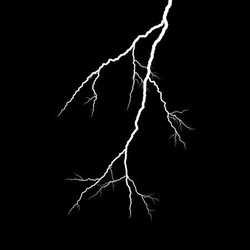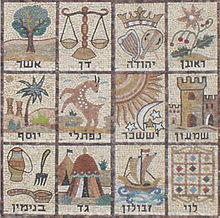 We sin; we don't sin. We sin; we don't sin. It seems as though John goes back and forth on the issue. In 1 John 1:8 he says, "If we claim to be without sin, we deceive ourselves and the truth is not in us." In 1 John 3:6 he says, "No one who lives in him keeps on sinning. No one who continues to sin has either seen him or known him." What are we to do with these two verses? One interpretation is that in chapter 3 John means that Christians don't persist in sin. They don't continue to commit the same sin with no thought of repentance, confession, or change. The author of Hebrews seems to share this opinion in 10:26 when he writes, "If we deliberately keep on sinning after we have received knowledge of the truth, no sacrifice for sins is left." When we are baptized, we receive grace to help keep us from sin. And God continues to give us this grace, this help along the path. If we use the grace we are given, and continue to ask for more help from the Holy Spirit, the habitual sins of our past should fall by the wayside. We continue to become more like Jesus every day. For Reflection: Do I have a persistent sin in my life? Have I repented and confessed it? God's grace is sufficient for any situation. Let us pray. Jesus, your grace is sufficient because you died for me. Your grace is sufficient because your mercies are new every morning. Your grace is sufficient because you are faithful and true.
0 Comments
 Our dear friend John keeps challenging us in his first letter. Now he wants to talk to us about "the world". Again his words are strong. "Do not love the world or anything in the world. . . For everything in the world - the cravings of sinful man, the lust of his eyes and the boasting of what he has and does - comes not from the Father but from the world" (1 John 2:15-17). We know that God created the world and declared that everything he created was good. So what is it about the world that we should not love? Cravings refers to satisfying our physical desires; lust is the desire for and accumulation of things; boasting is pride as if we accomplish anything on our own. These things that John warned against are still prevalent today and still just as hard to overcome today. Perhaps more so. Today we have a feast for the eyes through all kinds of social media. Temptations are everywhere. And we don't necessarily have to partake of the offerings in order to sin. We just have to crave, to lust. We can do those things without leaving our favorite chair at home. Boasting can be about what we have accomplished or about what our children or grandchildren have accomplished; e.g., graduated from Harvard, makes six figures, vacationed on the Riviera. We hear these types of boasts all the time. But how often do we hear, "My grandson is such a Godly man." Or "My daughter is a woman after God's heart." For Reflection: Craving, lusting and boasting are ever-present temptations. Where is love for "the world" present in my life? Is there a way to eliminate or at least minimize whatever leads me into these sins? Let us pray. "You are my King and my God, who decrees victories for Jacob. Through you we push back our enemies; through your name we trample our foes. I do not trust in my bow, my sword does not bring me victory; but you give us victory over our enemies, you put our adversaries to shame. In God we make our boast all day long, and we will praise your name forever" (Psalm 44:4-8).  "God is light" is the opening theme of 1 John (1:5). The light of God is contrasted with the darkness of Satan, sin and evil. God is pure light. In him there is no darkness at all. If there is darkness in us, then we are not in the pure light of God. The pure light is the truth; darkness is a lie. All have sinned and fall short of the glory of God, as Romans 3:23 tells us. If we claim not to have sinned, then we are liars. The pure light of God is sinlessness and it is truth. All else has some measure of darkness, sin and fabrication. Since we are not perfect, not pure, then we have elements of darkness, sin and falsehood within us. However, if we confess our sins, God will forgive us and purify us. This is a great promise - like a "get out of jail free" card. If we but sincerely repent and confess our sins, God will forgives us. It's not that he might forgive us, or probably he will forgive us, but he will forgive us. It's a sure thing. God will take us out of the darkness and bring us back into the light. He sets us free from our bad choices. Thus begins John's argument against those who would deny the reality of sin (1 John 1:5-10). Sin is real and it is present in all of us. If we think it is not, we deceive ourselves. For Reflection: Have I been thinking that I am past all that sinning "stuff?" I'm too good to sin now. If so, how did this lie get into my thinking? Let us pray. Blessed be your glorious name, and may it be exalted above all blessing and praise. You alone are the Lord. You made the heavens, even the highest heavens, and all their starry host, the earth and all that is on it, the seas and all that is in them. You give life to everything, and the multitudes of heaven worship you" (Nehemiah 9:5b-6).  Many people consider the 10 commandments and other Christian rules to be things that God said "don't do" or the churches say "don't do" just to keep people from having fun. In reality God has reasons for those rules and the churches are charged with teaching those rules. The first of God's reasons seems to be "Be holy because I, the Lord your God, am holy" (Leviticus 19:1; Matthew 5:48). God made us to be like him. He is holy and perfect and he wants us to be holy and perfect. As a father he is holding himself up for his children as an example to be followed. And so his commands are about doing what he would do and not doing what he would not do. The second reason would seem to be because his commands, his instructions, help us to get along with him, with ourselves and with others. Leviticus 18 - 20 expand on the 10 commandments. These chapters give details and no doubt answer questions that had arisen about following God's rules. They cover participating, or not participating, in the customs of the people around them, e.g., "Do not give your children to be sacrificed to Molech" (Lev 18:21). We mustn't defile ourselves or other people because it also defiles the land. "And if you defile the land, it will vomit you out as it vomited out the nations that were before you" (Lev 18:28). For Reflection: There is nothing like the Bible for vivid imagery. God spoke of our actions defiling the land long before modern man came up with the idea of mankind polluting the land and the seas. Do any of these sins sound like fun? Do being disrespectful to God, ourselves and others sound like fun? Let us pray. "May my tongue sing of your word, for all your commands are righteous." (Psalm 119:172). Photo: "Streamerglass" by Tiffany Studios. Licensed under Public Domain via Wikimedia Commons http://commons.wikimedia.org/wiki/File:Streamerglass.jpg#/media/File:Streamerglass.jpg  Our God is powerful. There is no doubt about it. "He made the earth by his power; he founded the world by his wisdom and stretched out the heavens by his understanding. When he thunders, the waters in the heavens roar; he makes clouds rise from the ends of the earth. He sends lightning with the rain and brings out the wind from his storehouses" (Jeremiah 51:15-16). Yet he also makes us powerful on his behalf. He made this clear in the New Testament through Jesus' calling, appointing and sending out the disciples to do the same things he did (which we have covered here before). But we can also see it in the Old Testament, for example in Jeremiah 51:20-23, "You are my war club, my weapon for battle - with you I shatter nations, with you I destroy kingdoms, with you I shatter horse and rider, with you I shatter chariot and driver, . . . with you I shatter governors and officials." In the view of the Old Testament authors, God used various rulers and nations to punish other nations who did not follow in God's ways - even Israel. God may sometimes use us to call people away from sin toward the good. To do this, we may not necessarily be a war club or lightning strike to shatter people, but we may be the quiet voice of love to draw people. We may listen to people who are bitter and angry and be able to show them another way; e.g., "You know I got over my bitterness and anger by choosing to forgive." Or perhaps they have strayed into pornography, and we may say, "I used to be into pornography until I realized how much it was detracting from my relationships with my family." In these ways we shatter not people but strongholds of sin and we help to set captives free (Luke 4:18-19, Isaiah 61:1-2). By doing these things, we give people the oil of gladness to replace their mourning and the garment of praise to replace their despair (Is 61:3). Let us pray. Jesus, I want to draw people to you. I want to help set the captives free. Use me, Lord. Put the right words in my mouth when I need them.  Many of us are dragging around a load of guilt. We think that we are too great a sinner for God to forgive us. Not true. God is bigger than our sin. In fact it is hubris to think that any sin of ours is too big for God to forgive or to believe that he can't take away our guilt. Paul made this very point is his letter to Timothy. Paul considered himself the worst of sinners. He was a "blasphemer and a persecutor and a violent man" (1 Timothy 1:13-16; Acts 8:3). Yet God forgave him. Jesus came into the world to save sinners. If Jesus can forgive someone like Paul (who really was a great sinner) and take on all of Paul's sin and guilt, why not ours? For Reflection: Jesus came into the world to save sinners. I am a sinner. Therefore Jesus came into the world to save me. Let us pray. Jesus, I have sinned. I realize that if you can forgive Paul, you can forgive me. I have . . . . I ask you to forgive me. Help me to make amends for what I have done and to not commit these same sins again.  Let's look at another prophet who didn't exactly make an excuse to God, but who recognized his deficiency before he answered a call from God. Isaiah has a vivid vision in which he sees the throne room of God Almighty with angels worshipping in full voice. The room shook and was filled with smoke. The magnificence of the vision terrorizes Isaiah, who cries out, "Woe to me! I am ruined! For I am a man of unclean lips, and I live among a people of unclean lips, and my eyes have seen the King, the Lord Almighty" (Isaiah 6:1-5). One of the angels flies to Isaiah and touches a live coal to his lips as an act of atonement for his sin and remission of his guilt. Being cleansed, he is no longer a man of unclean lips. So when God asks, "Whom shall I send?" Isaiah is able to answer, "Send me" (Isaiah 6:6-8). Does Isaiah even know what he is volunteering for? Perhaps not. But by cleansing him God has equipped him to speak to a nation where justice is perverted, the poor are oppressed, idols are worshipped and the government looks to pagan nations for help rather than to God. But we see that just as God gave words to Moses and Jeremiah, God supplied words of prophecy to Isaiah. God does not call anyone without equipping them to do the job. For reflection: To what mission has God called me? How has God equipped me for that mission? Le us pray. Lord, we bow before your holiness and acknowledge that we too are a people of unclean lips. We see justice perverted and don't speak up. We see the poor oppressed and expect someone else to do something. We see our nation turn for help to anyone but you. Cleanse us of our sin, equip us with your words, and help us to proclaim your righteousness in the land. Your kingdom come, your will be done on earth as it is in heaven.  Of the 12 sons of Jacob, 9 had conspired to sell Joseph into slavery. Another one participated in the cover up. It was a terrible sin, but they were forgiven both by Joseph and by God. From those 12 came the nation of Israel. God did not choose 12 men who were without sin, he chose 12 who knew the power of forgiveness. Forgiveness restored the relationship of the brothers to Joseph. Forgiveness restored the relationship of the guilty sons to their father. They had lied to their father and kept it secret for many years. No doubt if Joseph had not forgiven his brothers, his father would not have forgiven them either. Forgiveness saved their lives. Had Joseph not forgiven them, they never could have gotten the food in Egypt that saved them from the famine. For reflection: Forgiveness still has that power today. It has the power to restore relationships and save lives. It has power across miles, across generations, across time, death and eternity. Whom do I need to forgive? Let us pray. Father, I thank you for showing me the way to forgiveness. It is possible to even forgive people who have tried to kill me, or who wished me dead, or who have lied to me for years. With your help, I choose to forgive.  Sometimes people are appointed as leaders, and then turn out not to be good at it. We see this over and over in the Scriptures. One example is that of Samuel's sons, Joel and Abijah. Samuel was a good judge and prophet for Israel. When he got up in years, he appointed his two sons to follow in his footsteps. Unfortunately they accepted bribes and perverted justice (1 Samuel 8:1-3). So the Israelites, because they wanted to be like the other nations around them, asked Samuel for a king. Knowing that the Lord alone was King of Israel, Samuel objected. But God told him even though they were rejecting God as their King to go ahead and appoint a king for Israel. So Samuel warned the people about what a human king would do to them: draft their sons into armies and wage endless wars, conscript them to make weapons of war and to tend his fields; take their daughters to work for him; tax their fields and vineyards until eventually they all became slaves to the king and the kingdom (1 Samuel 8:10-18). And so it came to be that Israel experienced a succession of human kings who did just what God had said. For reflection: Who is king in my life? Has anyone or anything enslaved me? Let us pray. Father, I repent of not putting you first in my life. I declare today that you are my king and you are above all else in my life. I want to weed out all the other things I have allowed to crowd you off the throne. I repent of and reject all addictions in my life, everything that separates me from you. Please show me how to change my life. |
AliceI started this website and blog on May 1, 2012. I am a Catholic who has been in ministry for many years. I first developed what I would call a close relationship with Jesus in the early 1970s. Ever since then I have been praying with people for healing and other needs. It is because I have seen so many of these prayers answered that I am so bold as to offer to pray for you individually through this website and phone line. Archives
July 2021
Categories
All
|
Proudly powered by Weebly


 RSS Feed
RSS Feed